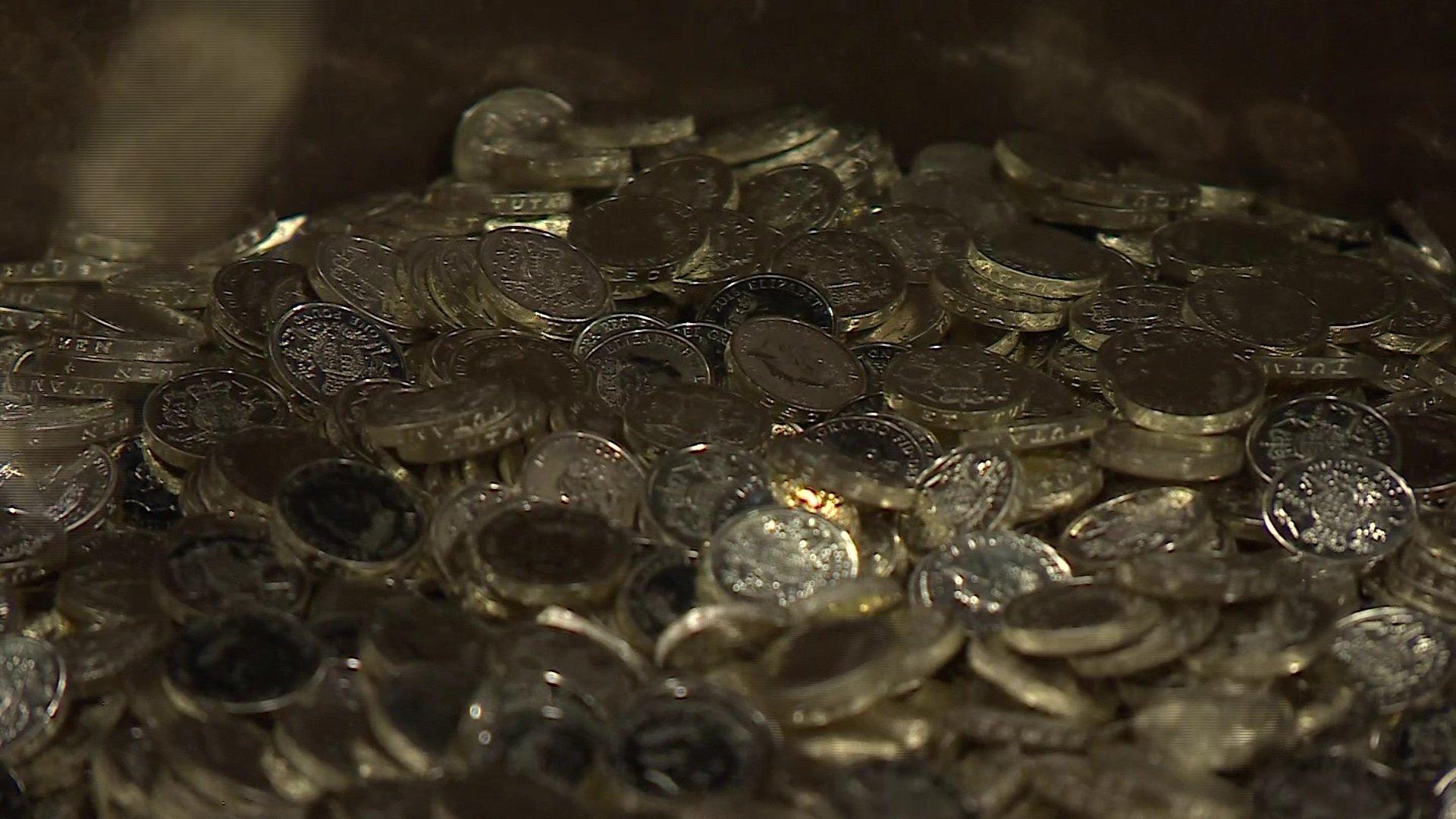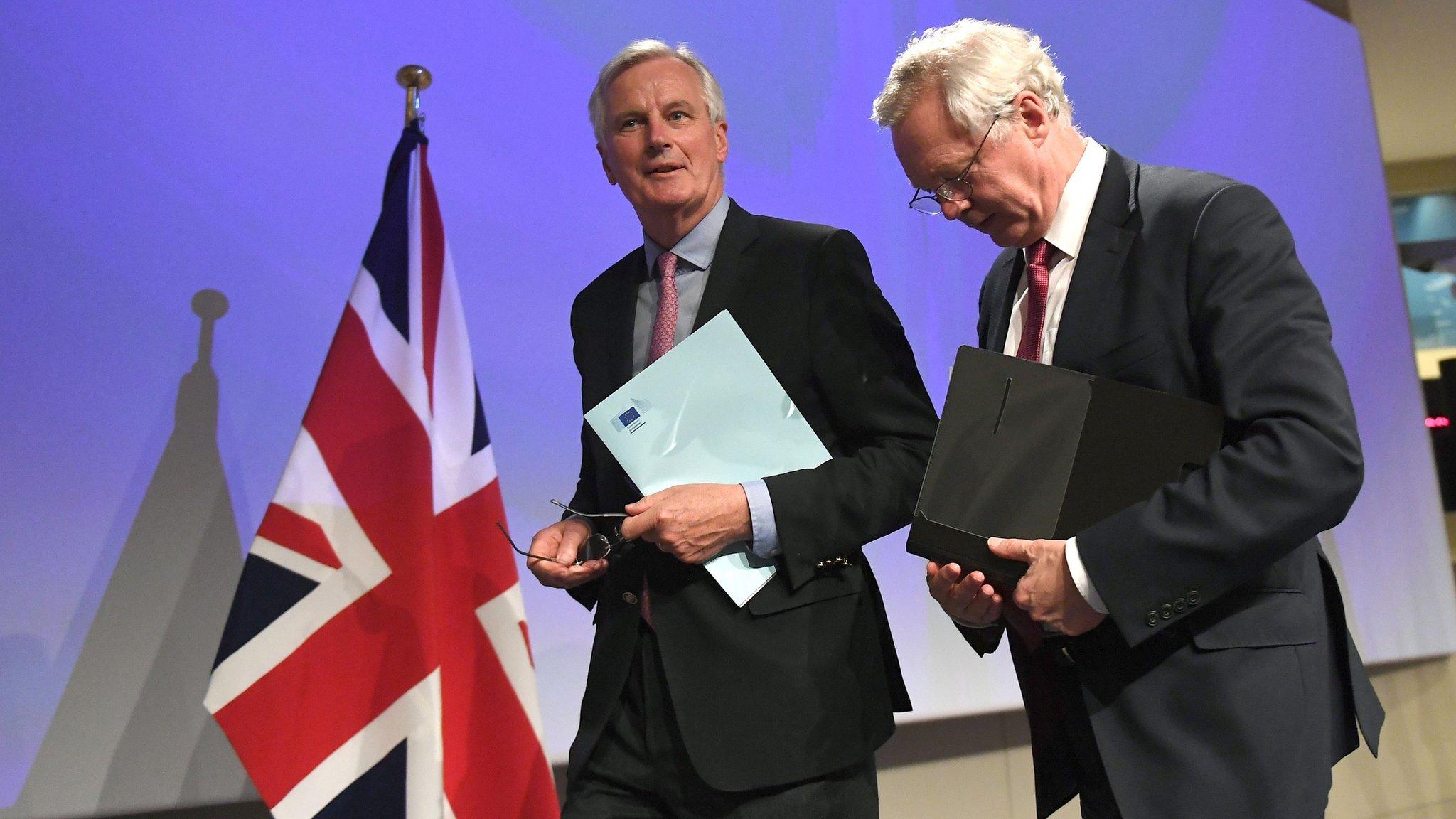Pound's bumpy Brexit: Goods and holidays up
- Published

Clothing, energy and food are all more expensive than a year ago
The pound has had a testing Brexit year - and most of us are feeling it.
The devaluation of the currency, against both the dollar and the euro, has been the major event, post-referendum.
Put simply, it has made things more expensive, from the goods we import to the cost of a foreign holiday.
It comes as the negotiations on the UK's exit from the European Union begin in Brussels.
Against the euro, the pound has dropped 12% since last June, and at one point in October it hit a six-year low against its neighbouring currency.
"I think consumers are very much aware of where things are now," said Brian Telford, head of markets at Danske Bank in Belfast.
Cost of living
Sterling's depreciation is central to the rising cost of living.
Last June, inflation was 0.5% - now it is 2.9%, overtaking many people's pay rises.
Clothing, energy and food are all more expensive than a year ago.
"The weekly shop is costing a little bit more than it used to because an awful lot of what we buy comes from somewhere else," said Mr Telford.
Tourism is booming
There is a flip-side, but one likely to provide much comfort to customers.
Many visitors have increased spending power - their dollars or euros are going much further - and tourism in Northern Ireland is prospering.
Local manufacturers are also exporting at record levels.
Rising sales are linked to their goods now being cheaper in our major markets, Europe and the United States.
Pound over-valued
Economist Neil Gibson believed the pound "was probably over-valued" before the referendum.
"Ultimately as a region we need to export more and balance away from more consumer spending.
"In a long-run this is a welcoming re-balancing in the currency, but that does not make it any less challenging for people as they go out to spend in the shops," he added.
The pound's fortunes in the short-to-mid-term will continue to be tied-up in Brexit, with the money markets responding to the kind of trade deal the UK finally emerges with.
It will have an impact felt by us all.
- Published19 June 2017
